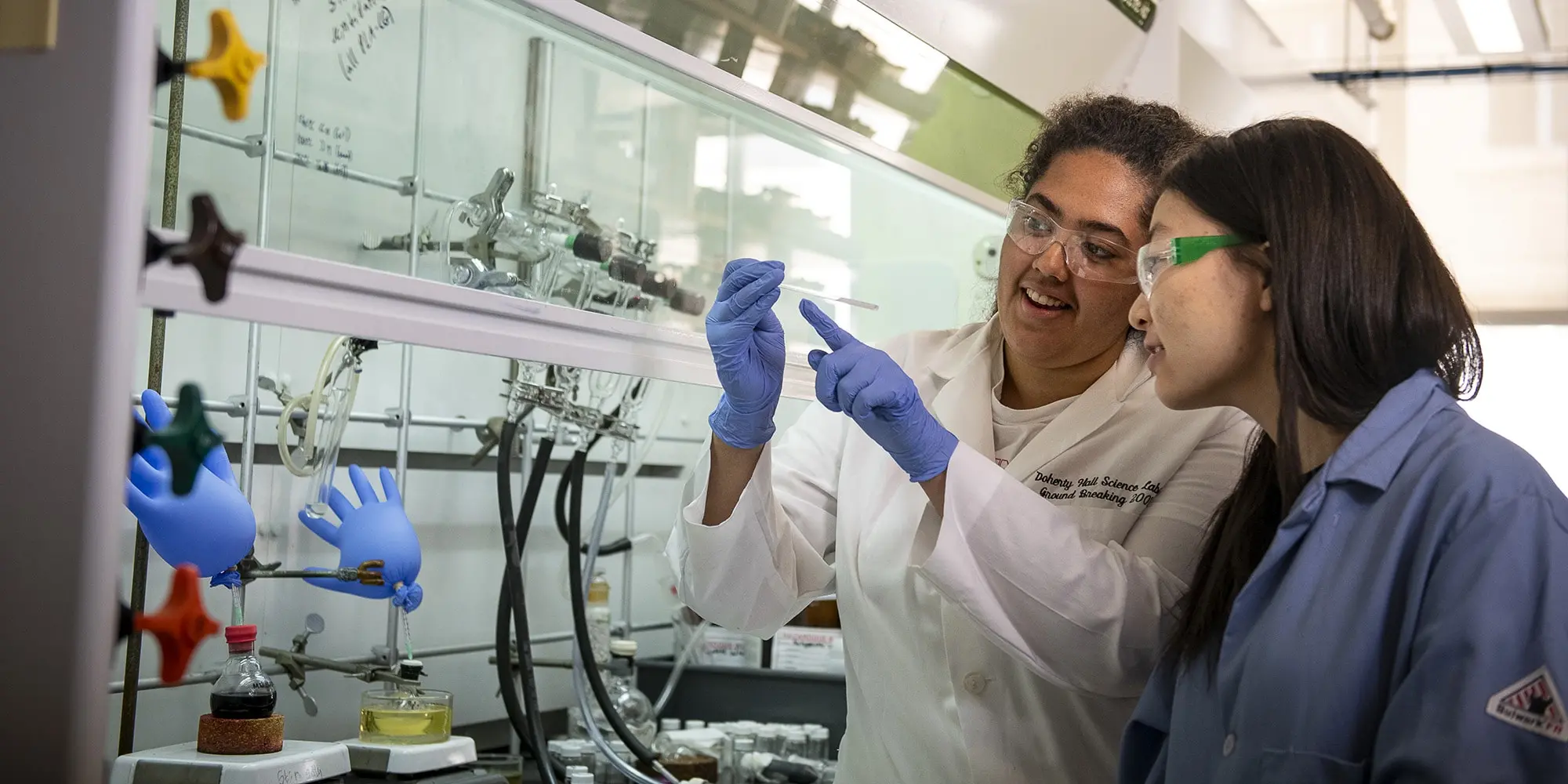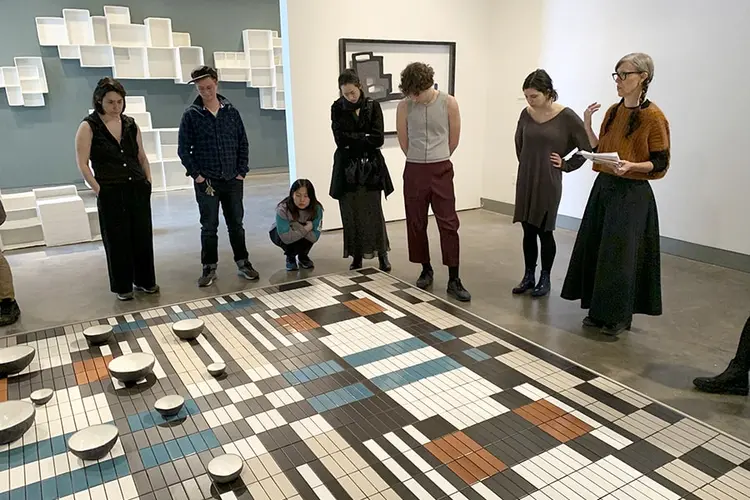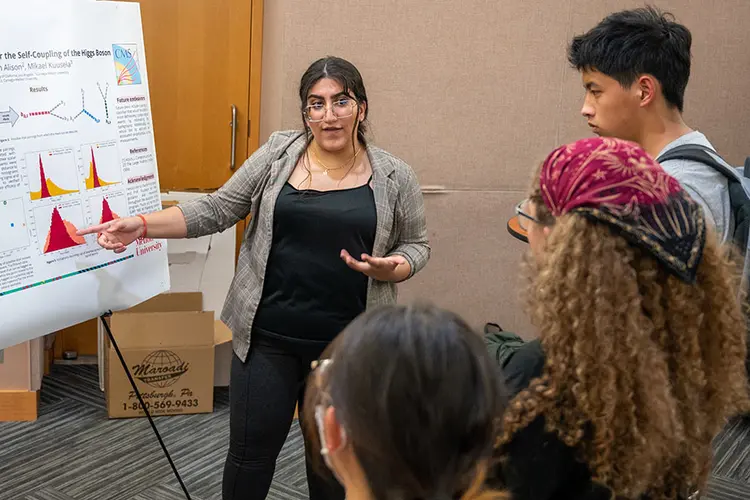
The Richard King Mellon Hall of Sciences
Media Inquiries
Made possible by a $75 million lead grant from the Richard King Mellon Foundation(opens in new window), CMU's new Richard King Mellon Hall of Sciences will emerge as a new center of campus life and serve as a Forbes Avenue gateway to Carnegie Mellon's campus.
The next-generation building, designed for collaborative education and research across disciplines, will anchor the university's vision for the future of science. The majority of the building, about 180,000 square feet, will be flexible space for classrooms, teaching and research labs, and other work and study areas for the Mellon College of Science(opens in new window). Life sciences — the departments of Biological Sciences(opens in new window) and Chemistry(opens in new window) — as well as the university's Neuroscience Institute(opens in new window) will be the primary occupants. The facility is one piece of the university's larger future of science initiative, which also includes the off-site Carnegie Mellon University Cloud Lab(opens in new window) — the first academic cloud lab in the world — and strategic investments to accelerate research in critical areas ripe for world-changing breakthroughs.
The Richard King Mellon Hall of Sciences also will contain approximately 110,000 square feet of facilities for CMU's top-ranked School of Computer Science(opens in new window). Faculty, staff and students from the Department of Computational Biology(opens in new window), the Language Technologies Institute(opens in new window) and the Department of Machine Learning(opens in new window) will create new synergies with researchers from the Mellon College of Science as artificial intelligence, data analytics and foundational science converge to solve previously unsolvable challenges.
Finally, the Miller Institute for Contemporary Art(opens in new window) will occupy about 25,000 square feet in the building, moving to a prominent location adjacent to the Carnegie Museums, doubling its gallery space and providing five times the capacity for visitors compared to its current home in the Purnell Center for the Arts.
Earlier this year, the university selected ZGF Architects as the building's designer. Construction is expected to begin in 2023, with the project completed in 2026.


